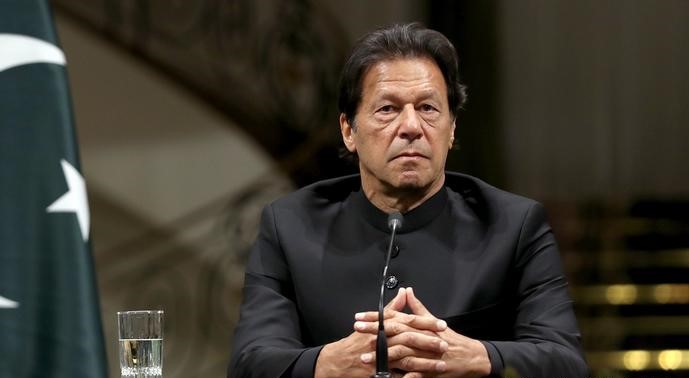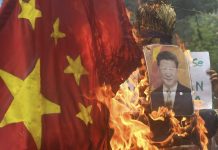The Imran Khan government will face a trust vote in Pakistan’s National Assembly, the country’s lower house, on Saturday (March 6). This will decide the fate of the three-year-old government.
The ruling coalition had suffered a defeat in the recent Senate elections when Finance Minister Abdul Hafeez Shaikh lost a tightly-fought battle for a seat to the opposition-backed candidate, former Prime Minister Yousuf Raza Gilani.
Gilani – the candidate of the Pakistani Democratic Movement, an alliance of 11 opposition parties – received 169 votes against Shaikh’s 164. Shaikh had to win a Parliament seat to continue as the finance minister. As finance minister, he has been responsible for the government’s reforms plan under the International Monetary Fund’s $6 billion loan program.
In a televised address to the nation on Thursday, Khan said even he loses the confidence vote, it wouldn’t make any difference to his campaign against corruption, which he claimed was a key factor in the Senate elections.
With this development, Khan is seeking the vote in National Assembly to show he still commands a majority there despite Shaikh’s loss. It is vital since seats in the Senate are voted on by the directly elected members of the powerful lower house. Meanwhile, the opposition alliance has asked Khan to resign after the loss.

Khan had the support of 180 lawmakers in the 342-member lower house when he came to power in 2018. If the premier fails to win the confidence vote, he will have to dissolve the National Assembly and call for fresh elections.
The announcement has raised concerns over the country’s economic reform agenda aided by the IMF, which was approved in July 2019 with an aim to reduce public debt, implement a market-driven exchange rate, and eliminate losses in the energy sector.
Experts believe if the Khan government is dissolved, the IMF program could be delayed until a new government is installed and it will decide how quickly the IMF program gets back on track.
Shaikh, a former World Bank official, had been serving as finance minister since December 2020. The country, which is already struggling due to the burden of the pandemic, would require a qualified person to oversee the finance department. There are two possibilities – either Khan helps the minister win another seat or re-appoints him as an economic adviser with fewer powers.
The political development has rocked the country’s markets as Pakistan Stock Exchange KSE-100 Index fell by over 1,000 points to 45,278 on Thursday, the lowest level in a month.
In the past few months, the country has witnessed massive protests and rallies by the opposition but Khan’s recent defeat has not only revealed signs of unrest in Pakistan, but also his loss of popularity, which could culminate in Khan’s ouster.
Apart from the IMF, projects under the $50 billion China-Pakistan Economic Corridor could also come to a standstill, which was pushed by Khan following his election. Experts believe that the projects will not be impacted and since the military has been asserting more influence over CPEC, the ouster of Khan wouldn’t have a major impact on the project.
Follow EurAsian Times on Google




